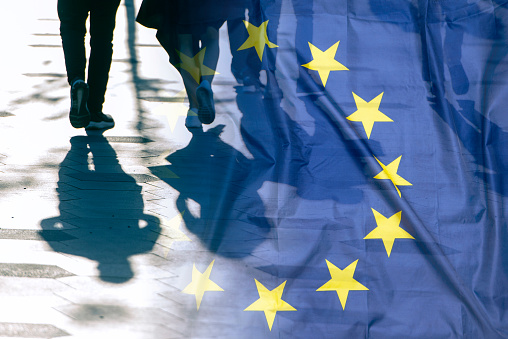What is Political Economy?
If you have ever wanted to know more about how governments run their economies, you might be curious to learn more about political economy. It is the study of political and economic systems, such as the financial and labour markets. It helps us understand the working of our economy and why governments have trouble getting economic policies right. Read on to find out more.
Politics and economics are not separate entities
Economics and politics are two very distinct disciplines, but they can be studied together. Public choice theory is one such study of political science through economic analysis. Both fields are concerned with the impact of economic policies on the economy. The study of economic policy is a key component of political economy. The two are closely related, yet distinct disciplines.
Economics is the study of the allocation of resources. There are two main ways of organizing competition: through markets and politics. Both involve private property, but political activity is different from voluntary exchange in markets. While some public sector actions benefit society without necessarily causing a net gain, others can be expensive.
Concentrated interests win over diffuse interests
A key question in political economy is whether concentrated interests win over diffuse interests. We are living in a world where a small group of people can have a huge impact, and where large groups have the ability to mobilize against a large group. It is a common assumption that concentrated interests win over diffuse interests, but this isn’t necessarily true.
If we examine the dynamics of the market, we see a pattern of concentrated and diffuse interests. Concentrated interests are those that have a clearly defined membership base and are accountable to their members. Examples include associations of lawyers, chemical companies, and hospitals. These groups have formal membership structures and processes, and their members want to engage and influence policy.
While a large group may have a large number of members, they are not necessarily more congruent with public opinion than a small group. For example, the level of media salience has an impact on the levels of congruence between a concentrated interest group and the general public. This makes it more difficult for concentrated interest groups to accommodate the public’s interests.
Diverse interest groups represent diverse constituencies. Some represent narrow societal segments, while others represent broader societal groups. Their congruence with the public depends on their size and level of involvement. Concentrated interest groups have a clearly defined base of supporters, while diffuse groups represent broader societal segments. In some cases, they represent groups that are disenfranchised by the larger society.
Governments have trouble getting economic policies right
There is no perfect solution to economic problems, but governments often struggle to get economic policies right. Sometimes, they fail to listen to independent experts and structure policies in ways that are best for the country at hand. While economics is one of the factors that contribute to a country’s wealth and well-being, politics can make or break an otherwise good economic policy.
Theories of political economy
Political economy is a term that has been used for over 300 years to describe the interrelationship between the economic and political affairs of a state. It is most often used in governmental and international economic relations. It is a useful concept to help understand the functioning of governments and the functioning of society.
Theories of political economy are a good way to understand how political and economic processes interact with one another. They should be accessible to a wide range of students. Theories of political economy are often divided into classical, Marxian, and Keynesian approaches. There are also state-centered, power-centered, and justice-centered theories.
In the first part of the book, we will review some of the main theories of political economy. This includes the determinants of economic growth. This is a broad overview of political economic thought. In addition, it discusses the various theoretical traditions, the dynamics of economic systems, and the interdisciplinary connections between political economy and other disciplines. In total, there are 32 chapters that cover the full range of contemporary political economy. Topics covered include studies of the power of capital, behavioural economics, and the social structures of accumulation. Finally, the Handbook concludes by reflecting on how political economy can help us create a better world.
Political economy has a long history. It began as an intellectual discipline in the mid-18th century in response to mercantilism. Adam Smith, David Hume, and Francois Quesnay were among the early philosophers who emphasized the role of politics and social factors in the distribution of power and wealth.
Influence of culture on political economy
Towards a Cultural Political Economy is a relatively new school of thought. Its origins date back to the late 1970s and combines the critical methods of social capital analysis with the cultural turn. This branch of political economy focuses on the relationship between cultural capital and economic performance on the macro and micro levels.
It provides an interdisciplinary understanding of political economy as a form of social organization. It also challenges the idea that culture is static and cannot change. This approach conceptualizes culture as a collection of values. It argues that locating human interests within the underlying cultural values does not make instrumental and strategic calculations redundant. It locates decision-making, which may not be rational, in the context of the distribution of cultural values.
Economists have been reluctant to consider culture as a determinant of economic phenomena. This is partly due to the fact that the concept of culture is rather broad and vague, with a large variety of possible channels that influence the way economic decisions are made. Nevertheless, new data and better techniques have made it possible to relate preference formation to cultural legacy. This allows for more systematic tests of cultural-based explanations.
This view also fits with the notion of an equilibrium state in economics. According to economist Frank Hahn, an equilibrium state is a state where self-seeking agents learn nothing new and adjust their behavior according to economic circumstances. In other words, they do not alter their policies and theories in response to new economic messages. This is similar to what ecologists call social custom.
The role of culture in political economy has been controversial. Some researchers have argued that it affects the way humans behave. Some researchers suggest that this culture influences the strength of social norms.



